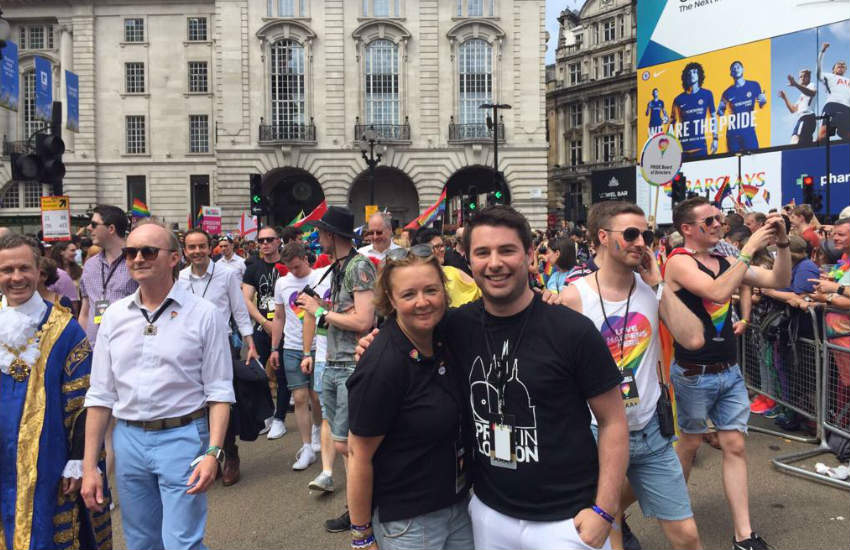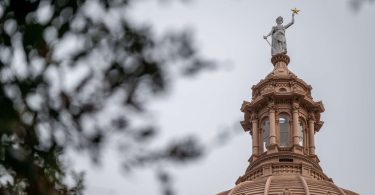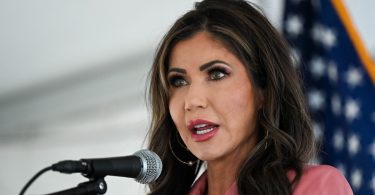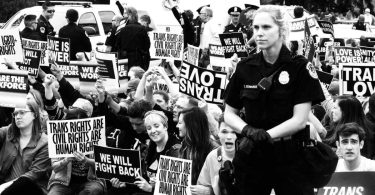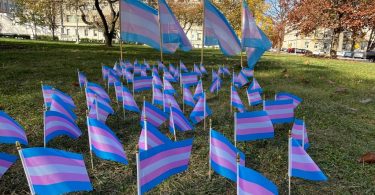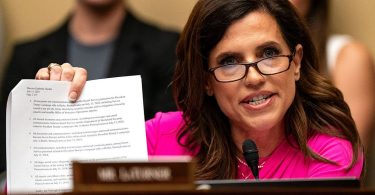Alison Camps with Pride in London director of marketing Iain Walters at Pride 2017 | Photo: supplied
Pride matters. The beautiful thing about it is that it ‘belongs’ to everyone and no-one.
What Pride means to me, and how I express it, can be entirely individual to me. Yet I can still feel an integral part of something much bigger.
For me, Pride represents a re-awakening.
I had never actually been a regular attendee until I got involved in Pride in London. In the wake of a breakup, a straight friend of mine introduced me to the team, telling me I needed to ‘get off my sorry ass and do something good’. It was sound advice and I am grateful to her for it.
Five years on, I am still an ‘accidental activist’ and this will be my second Pride in London as Co-chair. What started in 2013 as a brave – some might say foolish – endeavor to restore pride to the capital after the collapse of the event in 2012 by a small group of people with a lot of big ideas has grown into a core team of around 150 people who give their time year-round.
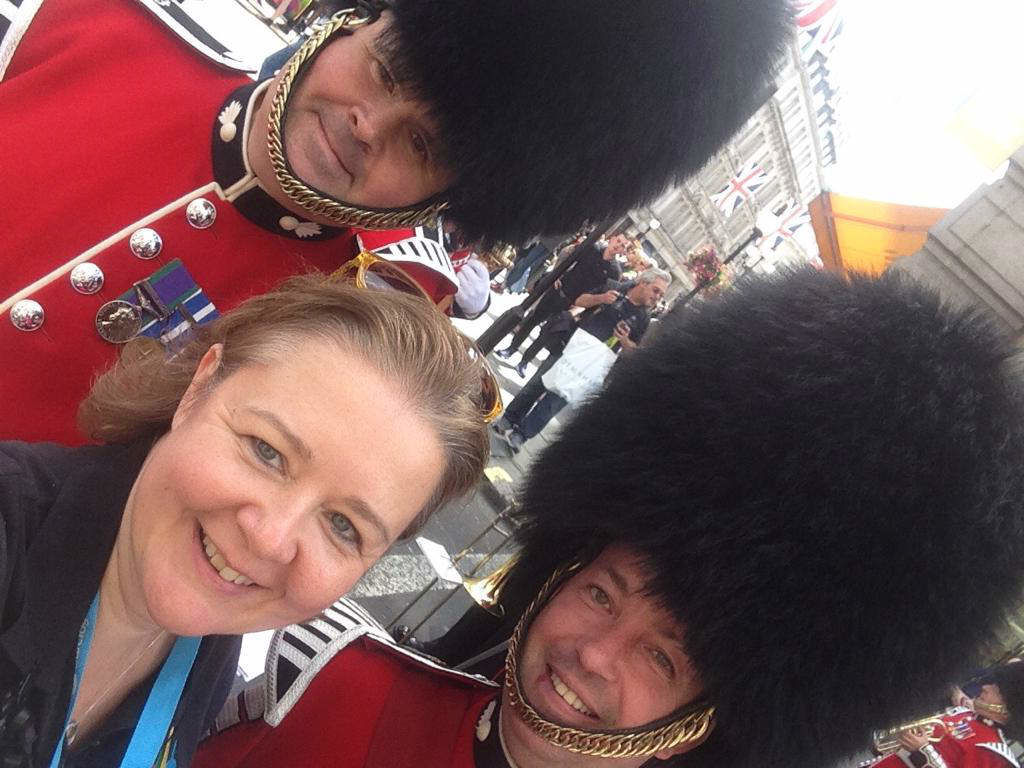
Alison Camps at Pride in London 2017 | Photo: supplied
‘It feels like being part of a family’
I’m not going to lie, it’s not the easiest job in the world. Pride evokes a lot of passion in people. Expectations of London are high, but I think it’s important to remember that it’s run by volunteers. They do amazing things with limited resources and a lot of goodwill. It feels very much like being part of a family; a bit dysfunctional at times, but bound together for better or worse. And, most importantly, we are strongly protective of each other, our shared purpose and ideals.
Over the past couple of years, some people have started to question if we need Pride or not. I remember in particular a bit of a Twitterstorm over a young (white) gay man who declared that Pride was no longer a ‘thing’ and that we should all just focus on getting our party on.
I can’t recall his name, but I was quite torn at the time… between feeling sorry for him as he faced the inevitable, quite vitriolic, backlash, and angrily despairing at his barefaced entitlement and ignorance − in the sense of ignoring − of the sacrifices that others had made so he could live freely as himself. He ignored the struggles that so many LGBTI people have faced and continue to face. Because having equal rights is not the same as being equal.
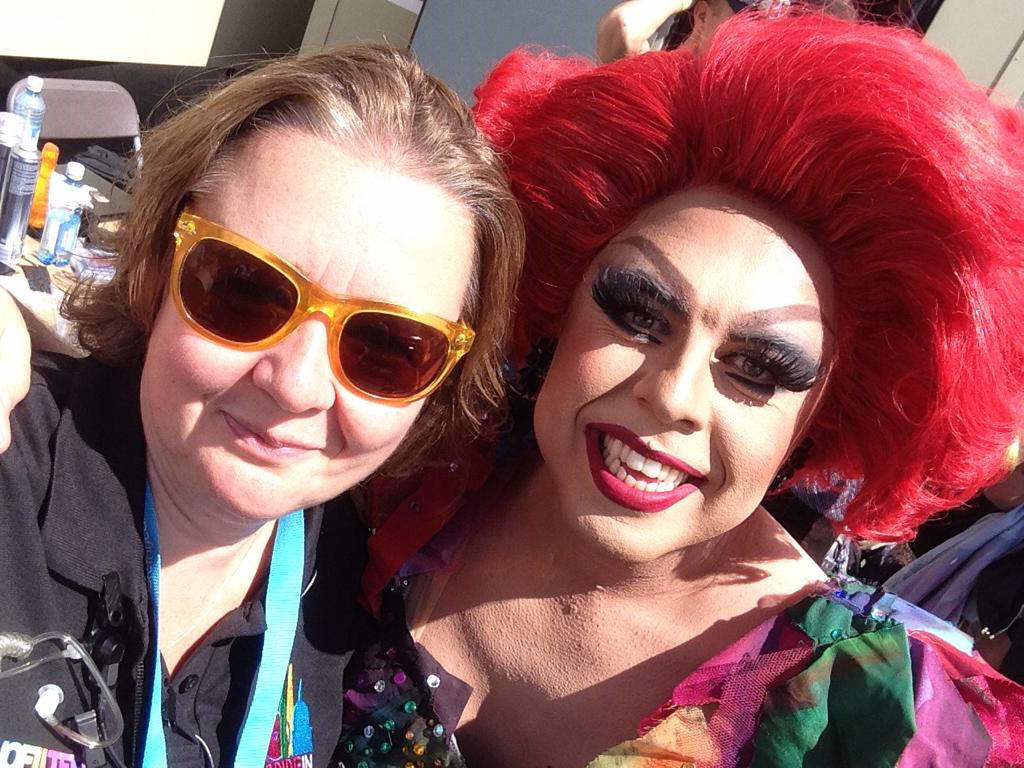
Alison Camp with UK’s favorite drag queen La Voix | Photo: supplied
There is still a long way to go
I don’t know him, never met him, but I’d love the chance to sit down with that young man (can you tell I no longer count myself in that demographic?) and share with him some of the things I’ve learned from being a part of the Pride movement and why it matters as much today as it did in 1972, the year of the first Pride march in London.
I could tell him how our research shows that only half of the UK total population completely agrees that ‘Everyone in the LGBTI community has the right to live their life as who they are, without fear of judgment or prejudice’. Think on that for a moment. Half of your fellow citizens remain to be convinced of your right simply to be yourself.
If that wasn’t enough to change his mind, I could shock him with the astounding fact that people in the UK think animal rights matter more than tolerance for those with different sexualities or gender identities.
‘Feeling threatened is a daily occurrence’
I could show him how for some in our community feeling threatened is a daily occurrence. How, for every LGBTI person like him who goes about their day-to-day without fear of being judged, there are many who can’t. Pride can help them feel less marginalized and make sure their voices are heard.
Sadly, we’ve all seen stats like this before. I think complacency and indifference within our own community towards LGBTI rights are our mortal enemies. As long as it’s my privilege to lead the Pride in London team we’ll be working to help defend and improve the lives of LGBTI people in London and beyond.
Because we are activists, not party planners.
You might also like:
This emotional Pride in London video is coming to UK national TV

